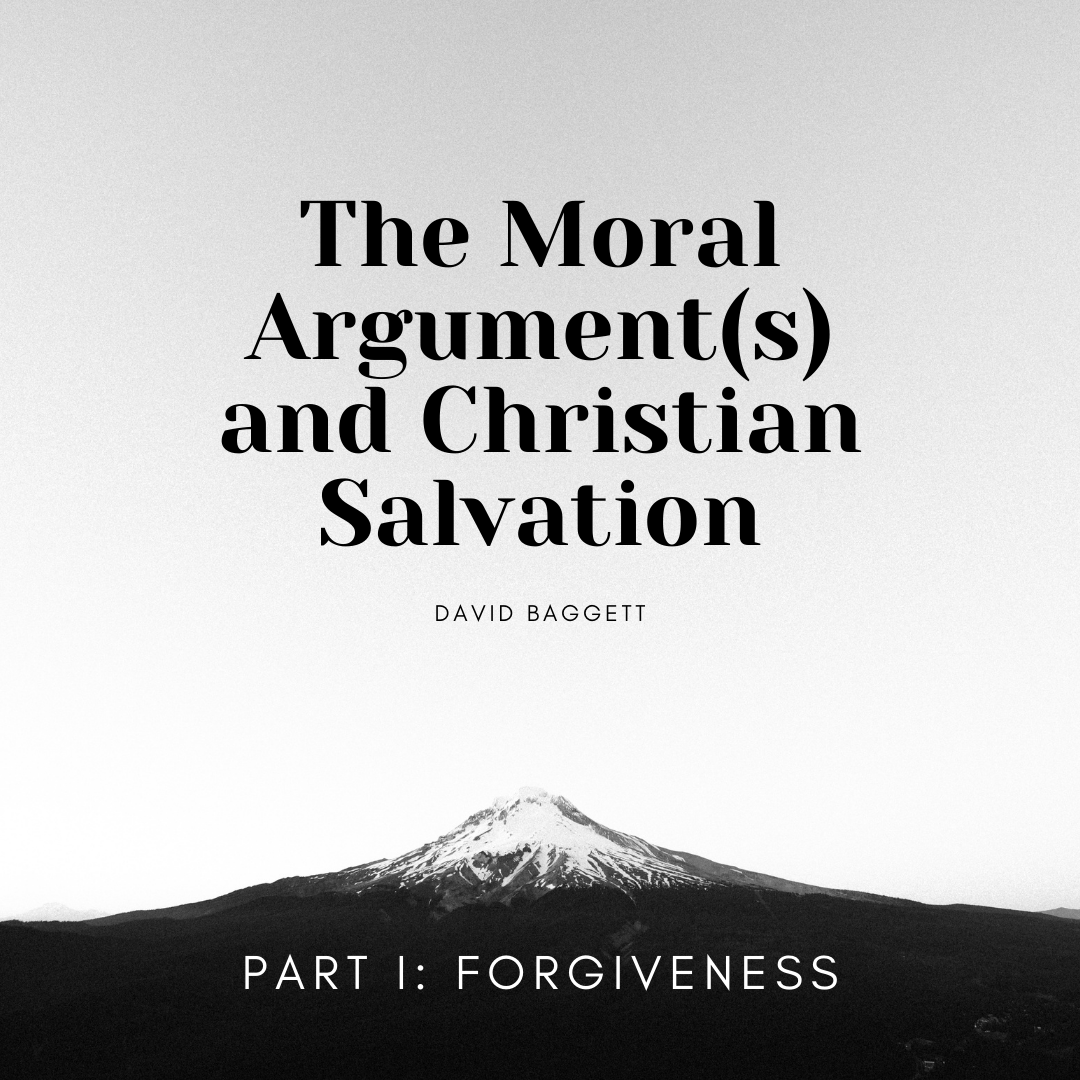Can Forgiveness Make Sense? (Part 2)
/Author’s Note: This paper was written for and initially presented at the first annual symposium of the Society for Women of Letters (June 2022, Asheville, NC).
The Lord’s Prayer as Model and Means of Forgiveness
The Lord’s Prayer is the model that Christ offered his disciples when they asked for his instruction on how to pray. Wesley Hill’s primer on the prayer offers a helpful rundown of how the church has historically understood its import, and most of my discussion that follows is informed by that book.[1] The prayer consists of six petitions (or seven, depending on how the final section is handled). The opening three petitions center on God’s character and reign, and the others turn to the human condition, invoking God’s aid for what ails us. It’s a rich prayer, with quite a bit to unpack. But I want to focus primarily on how the full context can help us better appreciate and practice the difficult art of forgiveness.
Needy Creatures
We’ll start with the second half, the petitions aimed at the human condition. There we find Jesus acknowledging our agonizing need: our need for sustenance, both physical and spiritual; our need for grace, protection, and rescue. Regular recitation of this prayer, Hill explains, trains us to rightly envision our plight, as utterly dependent on God’s provision. Not just in the past as though God winds us up and leaves us to our own devices, but moment by moment, “this day,” we are sustained by God’s provision. What an antidote to the self-reliance enshrined in our contemporary American culture.
This reminder of who we are as God’s creatures is also a comfort as we consider the prayer’s appeal for forgiveness and deliverance from evil. Human beings are all in the same boat, we find—all, victims and victimizers alike, buoyed up only by God’s allowance. All of us are in dire need of saving from the sin that surrounds and infects us, the sin that’s “more pervasive and intractable than individual peccadilloes or improvable behaviors,” to use Hill’s language.[2] These petitions of The Lord’s Prayer strike at the very root of human corruption, the lie that tells us we are our own, that we can do as we please, and are unaccountable to anyone else. And most importantly for our purposes, the lie that the evil perpetuated against us cannot find refuge in our own hearts.
This is not to suggest a moral equivalence between large infractions and small. That bit of received wisdom often hampers our attempts at forgiveness, either asking us to minimize harm done to us or overestimating the harm we ourselves have done to others. As Cornelius Plantinga explains, “All sin is equally wrong, but not all sin is equally bad.”[3] He continues, “The badness or seriousness of sin depends to some degree on the amount and kind of damage it inflicts, including damage to the sinner, and to some degree on the personal investment and motive of the sinner.”[4]
If anything, The Lord’s Prayer is realistic about the nature and extent of sin in this world and the damage it does to God’s creation. Petition VII puts a face on the evil one who seeks to devour us, infiltrating and enlisting those who give themselves over to his service. “What we need to be rescued from,” Hill says, “isn’t just the devices and desires of our wayward hearts, as real and dangerous as those are, but also the malevolence of a personal being bent on our suffering.”[5] The temptation to revenge, as gratifying as it may feel, is to turn ourselves over to that destruction. Marilyn Adams explains, “To return horror for horror does not erase but doubles the individual’s participation in horrors—first as victim, then as the one whose injury occasions another’s prima facie ruin.”[6]
In Stump’s essay that I referenced earlier, she provides some language to help us think through these gradations of guilt. There she catalogues, on a sliding scale, the damaging effects sin has on the perpetrator him or herself, to include defects to the person’s psyche, memory, and empathic capacities, and sin’s harmful and unjust consequences in the world, whether resulting from the wrongdoer’s action or inaction.
Who God Is
These details matter to the one wrestling with forgiveness. A naïve understanding that jumps quickly to reconciliation can easily leave open the door for yet more harm, to both parties. It is not good either to sin or to be sinned against. The Lord’s Prayer dispels such naivety by virtue of its portrait of God, a loving Father who invites us into holy and flourishing fellowship with him. A world infected by sin and human corruption is incompatible with the promise we have in this prayer of God’s kingdom to come and his will to be done on earth as it is in heaven. Whatever forgiveness is, we can be sure that it is part and parcel of the resounding victory of the prayer’s final lines: God’s kingdom, power, and glory ultimately transcend and defeat whatever now is currently arrayed against them. This is the truth that The Lord’s Prayer opens our eyes up to, and the vision that enables us to enter into the spirit and process of forgiveness, trusting no less than God himself to bring it to completion. What Weisenthal could not be, as stand-in for the Jews that the Nazi soldier harmed, Christ himself can fulfill—both as the one to bear the harm done and the one to offer the ultimate absolution.
Prayer joins us in this process. It is a rebellion, as David Wells describes it, “against the world in its fallenness, the absolute and undying refusal to accept as normal what is pervasively abnormal.”[7] The Lord’s Prayer, then, is a clear-eyed, realistic assessment of our current status against the backdrop of what should—and ultimately what will—be, given God’s nature. Hill explains, “When we pray, ‘Your will be done, on earth as in heaven,’ we are aware of how God’s will is not being done in our world. We are asking God to overcome this contradiction, to act in such a way that life on earth increasingly resembles the peaceable and joyous life of God, of heaven.”[8]
Like the Persistent Widow in Jesus’ parable, when we fully embrace The Lord’s Prayer, we refuse “every agenda, every scheme, every interpretation that is at odds with the norm as originally established by God.”[9] We confess, along with Volf, that we cannot forgive on our own steam but that on Christ’s we can and should. We affirm that God’s kingdom is victorious over any and all attacks upon it, including the ones where we have found ourselves in the line of a perpetrator’s fire. Although this affirmation takes the form of a petition in The Lord’s Prayer, it’s functioning more as an alignment, of our purposes and spirit with God’s. Through recitation of the prayer, Hill says, we are “stretching our hearts so that we may learn to desire truer, greater realities.”[10]
This greater reality is our ultimate promise: deliverance from oppression, healing, and restoration from the disfiguration caused by sin and death.[11] Healing both for harm we have done and harm done to us. It is out of God’s character that his plan for salvation, his deliverance from guilt and the death and damage of sin in all of its instantiations, comes. And this is God’s plan, The Lord’s Prayer tells us, that is already underway and available for us right here and now, even if it is not yet fully realized. Only a God who has entered in to our suffering, who has taken on human flesh and dwelt among us can provide that remedy.
Christ as Our Deliverer
In Jesus Christ, God’s own son, we find all the resources that potential forgivers need. Christ is everywhere present in The Lord’s Prayer, both as the one inviting us into fellowship and as the very bridge we walk across to approach God’s throne. Christ is also the means by which God’s will is enacted in this world, the way the curse that we labor under is reversed, how our crisis of forgiveness is resolved. In the Garden of Gethsemane, Christ cries out to his Abba, Father, asking that the cup of suffering and death he is about to drink be passed from him. Even still, in an agonizing act of obedience and an illuminating echo of The Lord’s Prayer, Jesus declares, “Thy will be done.”
This divine action is the paradoxical linchpin of our faith and what ultimately makes sense of forgiveness’ counterintuitive demands. Hill explains it this way:
It’s clear to us that the will of God in heaven is the perfect, eternal love of Father, Son, and Spirit, unmarred by any suffering or dying. What is less intuitive—but what Gethsemane and, later, Calvary force us to notice—is that the will of God is also the way of the incarnate Lord into the far country of our suffering and dying, where he is mocked, spit upon, strung up, and left to suffocate. That is what it looks like for the will of God to be done on earth as it is in heaven because that is the only way our earth can be saved.[12]
Our forgiveness—whether enacted or received by us—our ability to heal and be healed, rests alone on the work of Christ on the cross. And that is the promise we must cling to as we undertake our own hard work of forgiveness. There’s a suffering involved in that process, to be sure, but we can know that that suffering is not in vain. Hill again: “God must also be at work in suffering, in darkness, in torment, because only if God confronts the horror we’ve made of the world, bears it, and bears it away can the triumph of God’s love be assured.”[13]
But let me not leave you with a promise of suffering. I recognize that’s not much of a comfort. My intention instead is to leave you with a word of hope, to help us fix in our minds the beautiful reality that lies on the other side of our earthly travails. Recently, I had the opportunity to hear N. T. Wright speak at Lanier Library in Houston, with a message that draws together the various threads of my argument and underscores the hope we have in our struggles to forgive. Turning to Romans 8, Wright highlighted how our own times of trial, our own Gethsemane moments—when we, like Christ, call out to our Abba, Father (Romans 8:15)—these are the precise places in which we can perceive, and even participate in, the divine life of God himself.
Those who have faced a crisis of forgiveness will certainly resonate with Paul’s acknowledgment that we often do not know how we are to pray. In trying to forgive painful hurts, we struggle to understand how justice can be achieved or why mercy must be extended. In that moment, Paul affirms, we can be sure that “the Spirit himself intercedes for us with groans too deep for words” (Romans 8:26). This co-laboring with God in our prayers of deep sorrow is the backdrop for the glorious assurance of Romans 8:28, a verse that Wright translates in this clarifying way: "God works all things towards ultimate good with and through those who love him.”[14] That’s true for our crises of forgiveness. Lament in the face of our overwhelming challenges, the times when we most keenly feel our frailty and most desperately need deliverance, is the very seedbed of the hope we cry out for.[15]
The Lord’s Prayer is really a lifeline to that hope, which will not disappoint. It’s a promise bigger than we can even imagine, although Jesus invites us to try. The petitions of The Lord’s Prayer, when we enter fully into its mindset, we recognize as pointers, pointers to the life we are made for and that God longs to welcome us into. As Hill explains, “This is what the final praise in the Lord’s Prayer means to direct us toward: there is coming a time when we will have no more need to ask God for bread, for absolution, or for rescue. All of our tears will have been wiped away, death will have been finally defeated, and the earth and its people will be at peace and thriving.”[16] And that is a promise we can cling to, a story big enough to house justice and mercy, and a power strong enough to fuel our will to forgive.
[1] Wesley Hill, The Lord’s Prayer: A Guide to Praying to Our Father (Bellingham, WA: Lexham Press, 2019).
[2] Ibid., 61.
[3] Cornelius Plantinga, Not the Way It’s Supposed to Be: A Breviary of Sin (Grand Rapids, MI: Eerdmans, 1995), 21.
[4] Ibid., 22.
[5] Hill, The Lord’s Prayer, 82.
[6] Marilyn Adams, Horrendous Evils and the Goodness of God (Ithaca, NY: Cornell UP, 2000),
[7] David Wells, “Prayer: Rebelling Against the Status Quo,” Summit Christian Fellowship, June 17, 2020, accessed May 29, 2022, https://summit-christian.org/blog/2020/06/17/prayer-rebelling-against-the-status-quo.
[8] Hill, The Lord’s Prayer, 42.
[9] Wells.
[10] Hill, The Lord’s Prayer, 45.
[11] Hill, The Lord’s Prayer, 34-35.
[12] Wesley Hill, “Praying the Lord’s Prayer in Gethsemane,” First Things, April 2, 2015, accessed May 29, 2022, https://www.firstthings.com/blogs/firstthoughts/2015/04/praying-the-lords-prayer-in-gethsemane.
[13] Ibid.
[14] You can find this translation in Wright’s God and the Pandemic (Zondervan, 2020). Glenn Packiam’s review of the book (found here: https://www.glennpackiam.com/post/n-t-wright-on-god-and-the-pandemic) also includes it.
[15] I’d love to claim credit for this phrasing, but it was all N. T. Wright. “Lament is the seedbed of hope” is a line from his talk that will stick with me for some time to come.
[16] Hill, The Lord’s Prayer, 94.
Marybeth Baggett is professor of English and Cultural Apologetics at Houston Baptist University. She earned her PhD in Literature and Criticism from Indiana University of Pennsylvania, and — along with her husband— recently has published Telling Tales: Intimations of the Sacred in Popular Culture (Moral Apologetics Press, 2021).


























